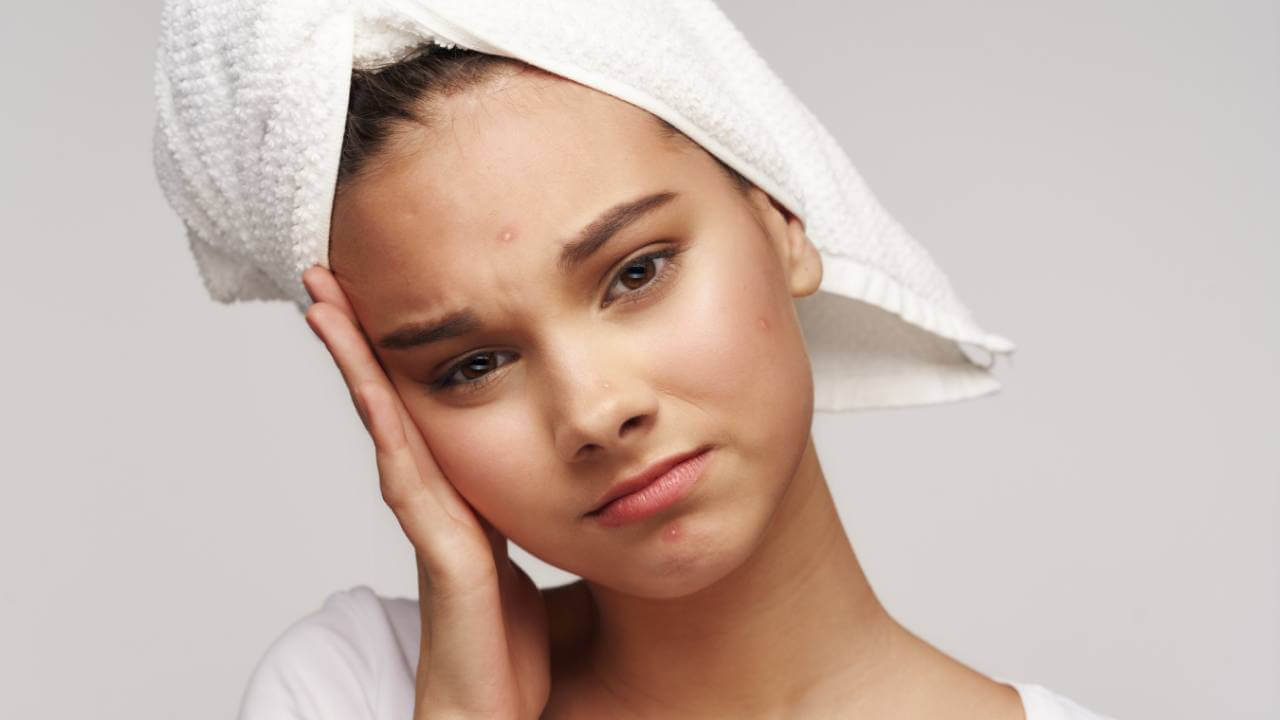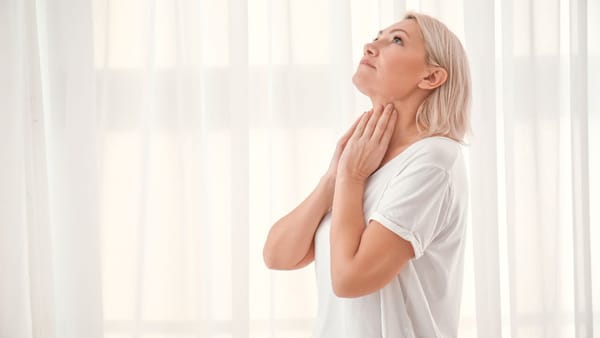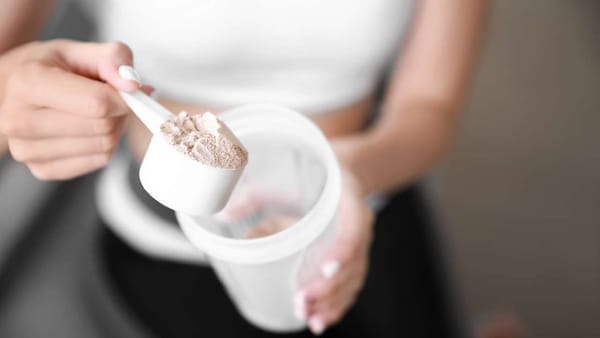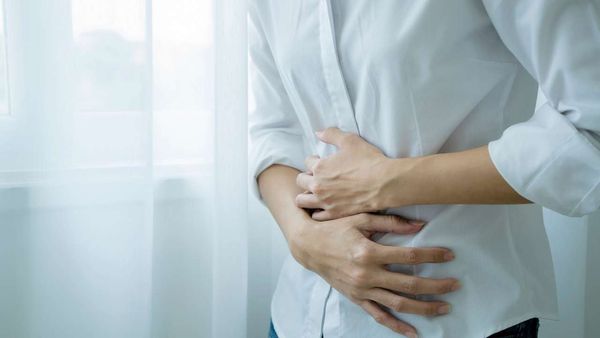Causes & Types of Acne | Acne Self-Care Steps | Lifestyle Factors | Over-the-Counter Medicine | When to Seek Professional Advice | Tips for Prevention & Treatment | Acne Myths | The Final Mention
Acne is a skin condition that affects millions of people around the world. But with so much information available on acne self-care tips, it can be challenging to know what professional advice to follow.
This comprehensive guide will help you understand the cause of acne, provide essential self-care tips, and reveal when it's time to seek professional help. By the end, you'll have a clear understanding of how to manage your acne effectively and confidently.
So let's dive in and take control of your acne blemishes!
Key Takeaways:
- Understand acne, its causes, and the different types of lesions for effective self-care.
- Choose non-comedogenic skin care products & make lifestyle changes to improve your skin health.
- Don't fall for myths, research-based practices are key to managing acne!
Understanding Acne: Causes and Types
Acne, also known as acne vulgaris, occurs when sebaceous glands in the skin become inflamed, leading to oily skin and blocked pores.[1] Whiteheads and blackheads form when skin pores become clogged, creating a plug on the surface of the skin. The top layer of the plug darkens, resulting in blackheads. Hormonal changes during the teenage years, genetics, and lifestyle factors can all contribute to the development of acne.
It's important to understand the different types of acne lesions to choose the most effective skincare routine. From mild whiteheads and blackheads to more severe cystic-type acne, knowing the type of acne you're dealing with will help you tailor your self-care routine and choose the right treatments.
Essential Acne Self-Care Steps
Taking care of your acne-prone skin is essential in managing the condition and preventing further breakouts. The skin care essentials for managing acne include choosing the right moisturizer or skin cream, proper cleansing techniques, protection from sun exposure, and using non-comedogenic skin care products.
We will now dive deeper into each of these essential self-care steps with practical advice to help you take control of your acne and improve your skin's overall health.
Choosing the Right Body Wash for Acne
When selecting the best acne body wash, it is important to look for active ingredients that may help reduce inflammation and irritation while also providing hydration. Ingredients such as salicylic acid, benzoyl peroxide, tea tree oil, aloe vera, hyaluronic acid, and glycerine are all beneficial for acne-prone skin. Avoid body washes that contain fragrances, dyes, and alcohol as these can be irritating to the skin and contribute to new breakouts.
Choosing the Right Moisturizer or Skin Cream
Moisturizing is key to maintaining healthy, acne-prone skin. Keeping the skin hydrated helps prevent it from becoming too dry or oily, which can make acne worse, especially in cases of severe acne.
Opt for a water-based moisturizing cream to avoid skin drying or peeling from prescription medications and acne medicines, including skin prescription gels. Look for daily skin care products that are specifically designed for acne-prone skin and avoid using those that may make your acne worse.
Proper Cleansing Techniques
Cleansing is a fundamental step in any daily skin care routine by removing dead cells, skin oils, and killing bacteria that can contribute to breakouts. However, it's essential to use gentle and effective cleansing techniques to avoid irritating your skin and worsening acne.
Start by using a small amount of salicylic acid cleanser twice a day to help unclog pores and remove excess oil. Apply the cleanser with a cotton pad or baby washcloth, massaging it into your skin gently in a circular motion, avoiding the eye area. Rinse off with lukewarm water and pat dry with a soft towel. Avoid scrubbing your face, as this can lead to irritation and inflammation, aggravating your acne.
Sun Protection and Acne
Protecting your skin from sun exposure is necessary for healthy skin. Too much exposure to the sun can increase your risk of skin cancer, especially if you're taking prescription or over-the-counter medicines that make your skin extra sensitive to the sun.
To protect your acne-prone skin from sun damage, use a broad-spectrum sunscreen with an SPF of at least 30, wear a wide-brimmed hat, and seek shade when the sun is strongest. Remember to reapply sunscreen every two hours or after swimming and sweating for optimal protection.
Choosing Non-Comedogenic Products
It's important to only use non-comedogenic products when dealing with acne, as these skin care products don't clog pores.[2] Clogged pores can lead to red inflamed papules, infection, and scarring, making it essential to use non-comedogenic products to keep your skin healthy.
When shopping for acne products, avoid using greasy cosmetics and look for labels that say "non-comedogenic" or "water based".
Primers for Acne-Prone Skin
For those with acne-prone skin, it's important to use a makeup primer as part of your skincare routine. Primers work as a barrier between your skin and makeup, which can lower the risk of clogged pores and breakouts. The best primers for acne prone skin can also help to even out your complexion and texture, reduce the size of pores, and make it easier to apply foundation.
Use Foundation for Acne Blemishes
Foundations are cosmetic products that even out skin tone and cover blemishes to create a flawless look. For skin that has been damaged by acne, the foundation you choose should be lightweight and have the ability to be layered for more coverage.
The best foundation for acne scars should offer full coverage without appearing thick or like a mask. Additionally, it should include water based ingredients that keep your acne-prone skin hydrated and offer protection from environmental factors such as the sun and pollution.
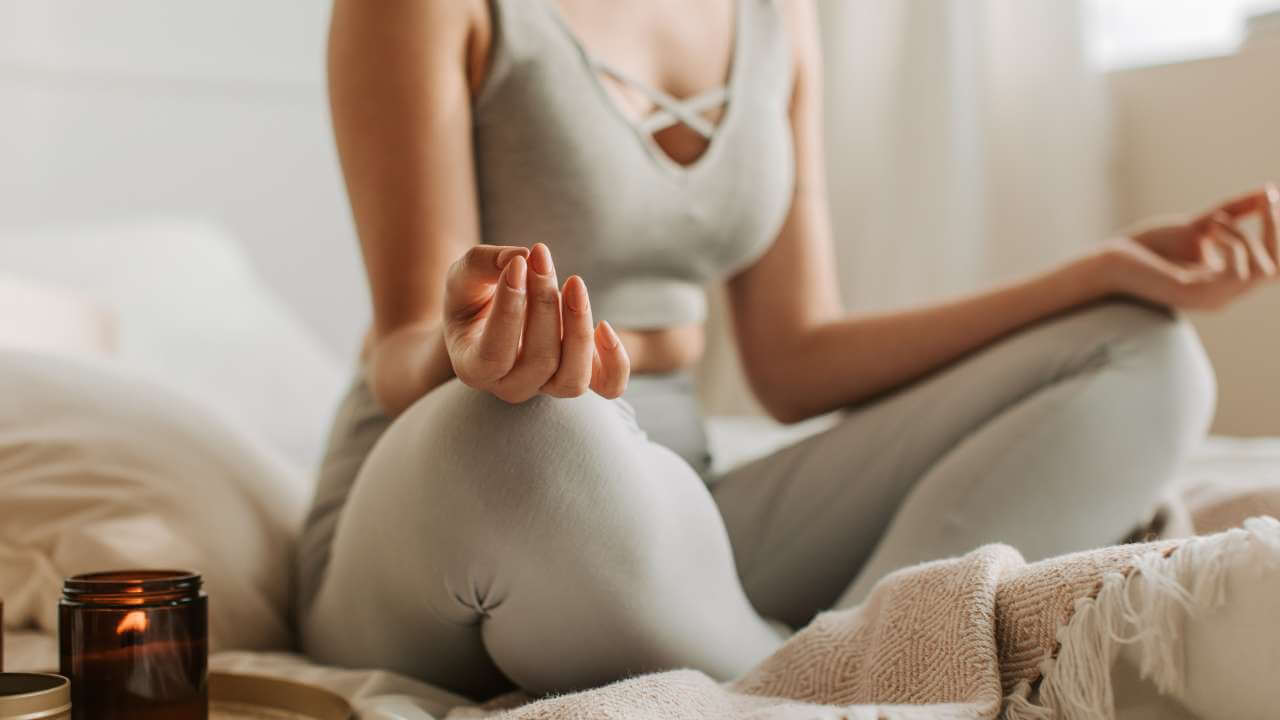
Lifestyle Factors Affecting Acne
Several lifestyle factors can make acne worse. Emotional stress, diet, and lack of sleep all play a role in the severity of acne.[3] Following these self-care steps may help to reduce the impact of lifestyle factors on your acne:
- Reduce emotional stress levels through relaxation techniques such as mindfulness and yoga.
- Exercise regularly to increase blood circulation, which may help improve the health of your skin.
- Avoid processed, high-fat foods which can worsen acne breakouts.
- Drink plenty of water to keep your skin hydrated and free from toxins.
- Get adequate sleep to give your skin time to renew itself and eliminate toxins.
- Take oral probiotic supplements to help reduce the risk of breakouts. The best probiotic for acne promotes a healthy gut microbiome, reduces inflammation, and supports healthy skin.
- Incorporate natural supplements into your routine, such as sea moss gummies. Rich in vitamins and minerals, sea moss can nourish your skin from the inside, helping to manage acne breakouts.
Follow these self-care steps and talk to healthcare providers for professional advice to answer any of your questions or concerns.
Over-the-Counter Medicine
Over-the-counter medicine (OTC) can be a helpful addition to your acne self-care routine. These acne medicines are available without a prescription and can provide relief for mild to moderate acne.
However, it's essential to use over-the-counter medicines with caution.[4] Many OTC acne medicines contain active ingredients such as benzoyl peroxide or salicylic acid, which can cause redness, irritation, and dry skin for some individuals. If this is the case, you may want to try one of the following alternative DIY home remedies:
- Tea Tree Oil: Tea tree oil is an effective, natural ingredient that can be used to treat acne. It has antibacterial, antifungal, and anti-inflammatory properties, making it an ideal remedy for reducing the small red bumps and swelling associated with acne.
- Green Tea: Green tea contains a powerful antioxidant called epigallocatechin-3-gallate (EGCG), which has been shown to reduce inflammation and help prevent acne breakouts. Additionally, green tea can help to inhibit the growth of bacteria that cause acne, which reduces the risk of further infection.
- Witch Hazel: Witch hazel is a natural remedy used to treat acne and pimples. It contains tannins, which are compounds that reduce inflammation and can help reduce swelling and redness associated with acne. Using witch hazel for pimples twice a day also helps to tighten the skin and remove excess oil that may lead to clogged pores.
If your daily skincare routine isn't providing the desired results, give OTC acne treatments a try, but follow the instructions carefully and monitor your skin's reaction. If you don't see improvement after 10 weeks or if your acne worsens, consult a healthcare provider for professional advice.
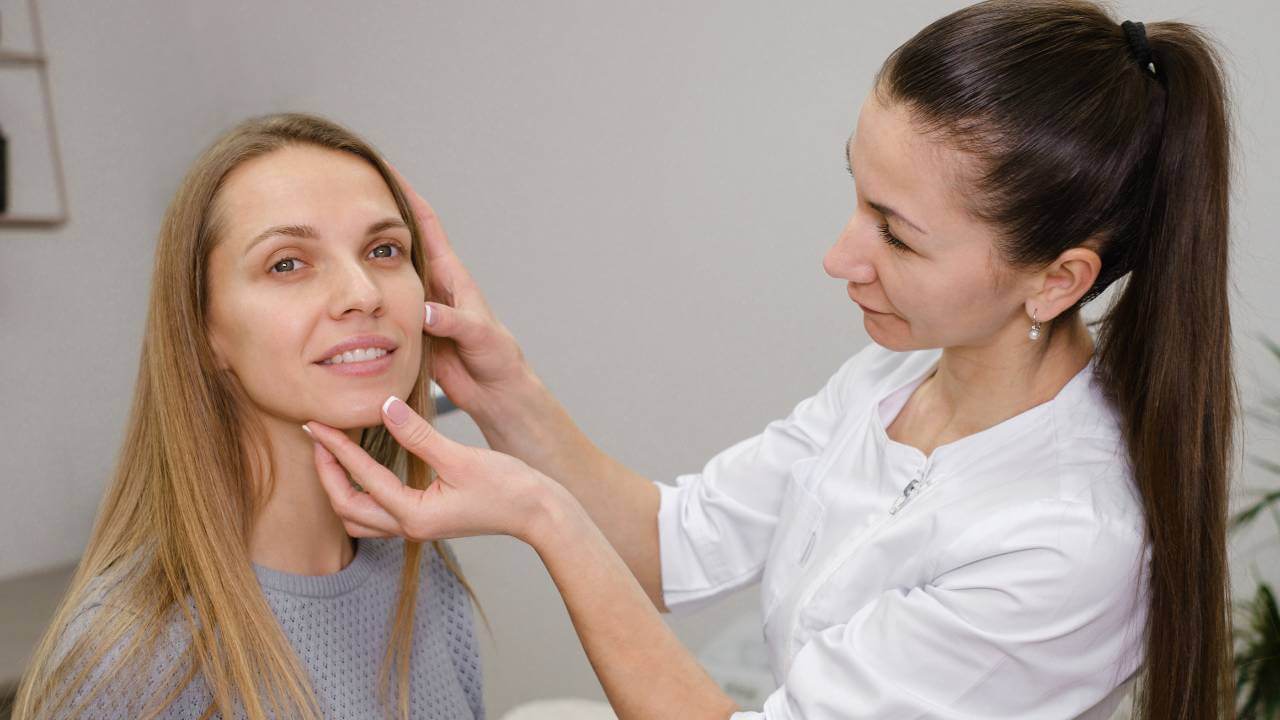
When to Seek Professional Advice
While many individuals can manage their acne through self-care, there are times when professional help is necessary for severe cases. If you have severe acne, develop scars, or see no improvement after several weeks of using over-the-counter medicines, it's a good idea to consult a healthcare provider.
In the following sections, we will briefly explore cystic-type acne and hormonal treatments, which often require professional guidance.
Understanding Cystic Acne
Cystic acne is a form of severe acne, characterized by painful, pus-filled pimples that form deep under the top layer of skin.[5] It occurs when oil and dead skin cells clog hair follicles, causing inflammation and swelling in the middle layer of the skin. Cystic acne self-care can be challenging to manage on your own and often require professional intervention from healthcare providers specializing in clinical dermatology. They can prescribe more powerful acne medicines and treatments to address the underlying causes and manage the symptoms more effectively.
Hormonal Treatments for Acne
Hormonal treatments can be an effective option for individuals struggling with acne, particularly women experiencing hormonal changes. Birth control pills and spironolactone are common hormonal treatments that help regulate hormone levels and reduce acne breakouts.
It's necessary to consult a healthcare provider before starting any hormonal treatments for acne, as they can determine the most appropriate option based on your medical history and specific needs. In addition to hormonal treatments, topical retinoids, isotretinoin, and antibiotics may also be prescribed for severe inflammatory or hormonal acne.
Preventing and Treating Skin Infections Related to Acne
Preventing and treating skin infections related to acne vulgaris is an essential aspect of self-care. To reduce the risk of skin infections, keep your skin clean, avoid touching your face, and follow these simple daily skin care tips.
Daily Skin Care Tips
To prevent oily skin and clogged pores:
- Use a gentle, non-drying soap or body wash to clean your skin.
- If you have oily skin or are prone to acne, try using a cleanser that contains salicylic acid or benzoyl peroxide.
- Wash your skin once or twice a day, and after exercising. Avoid scrubbing or repeated skin washing.
- Shampoo oily hair every day.
- Keep hair away from your face by pulling it back, but avoid wearing tight headbands.
- Avoid using rubbing alcohol or toners that cause dry skin.
- Avoid greasy cosmetics.
Tips For Getting Rid of Chest Acne
Acne blemishes can commonly appear on the chest and are not exclusive to the face. While it can be difficult to know how to get rid of chest acne, making some simple lifestyle changes may help you reduce or prevent your symptoms by avoiding triggering factors.
- Shower as soon as possible after your workout routine. Sweat that clings to the skin can clog your pores and may lead to body breakouts.
- To effectively treat chest acne, look for skincare treatments that contain sulfur, camphor, salicylic acid, and tea tree oil as these ingredients have been proven to reduce swelling associated with breakouts.
- Wear breathable clothing made from natural fabrics like cotton, linen, or silk to reduce perspiration and keep bacteria from forming.
Tips for Getting Rid of Back Acne
"Back acne" or "Bacne" typically develops during physical activity or exercise when sweat becomes trapped under tight clothing and is repeatedly rubbed against the skin, causing breakouts or making existing blemishes worse. Knowing how to get rid of bacne can be as simple as following all of the previously mentioned tips with the addition of:
- Use a scrub brush with an extended handle while bathing or showering to thoroughly rid your back of acne-causing dirt and oil.
- Use a mild soap or body wash and allow enough time for the cleanser to soak into your skin to do its job effectively before rinsing.
- To avoid clogged pores from the ingredients in shampoo and conditioner, be careful not to let them run down your back.
Tips for Preventing Hyperpigmentation from Acne
Hyperpigmentation from acne causes dark spots to remain after a pimple has cleared up. Before looking for an answer to how to get rid of hyperpigmentation from acne, follow these simple steps to prevent it from occurring in the first place.
- Treat acne in its early stages to prevent it from worsening and decrease the chances of developing pigmentation spots.
- If you pick, pop, or rub pimples, you are more likely to develop scars, which can cause hyperpigmentation.
- Avoid scrubbing or using harsh chemicals on the skin which can cause irritation and make acne worse.
By following these tips and maintaining a consistent self-care routine, you can minimize the risk of infections related to acne.
Acne Self-Care Myths Debunked
There are many misconceptions about acne vulgaris. Some common myths include the belief that acne will go away on its own, not washing your face will help acne, and that wearing makeup can cause acne.
Research has shown that taking care of your skin and maintaining cleanliness can help reduce acne, and not all makeup is the primary cause of acne breakouts. By debunking the myths and following evidence-based self-care practices, you can take control of your acne and improve your skin's health.
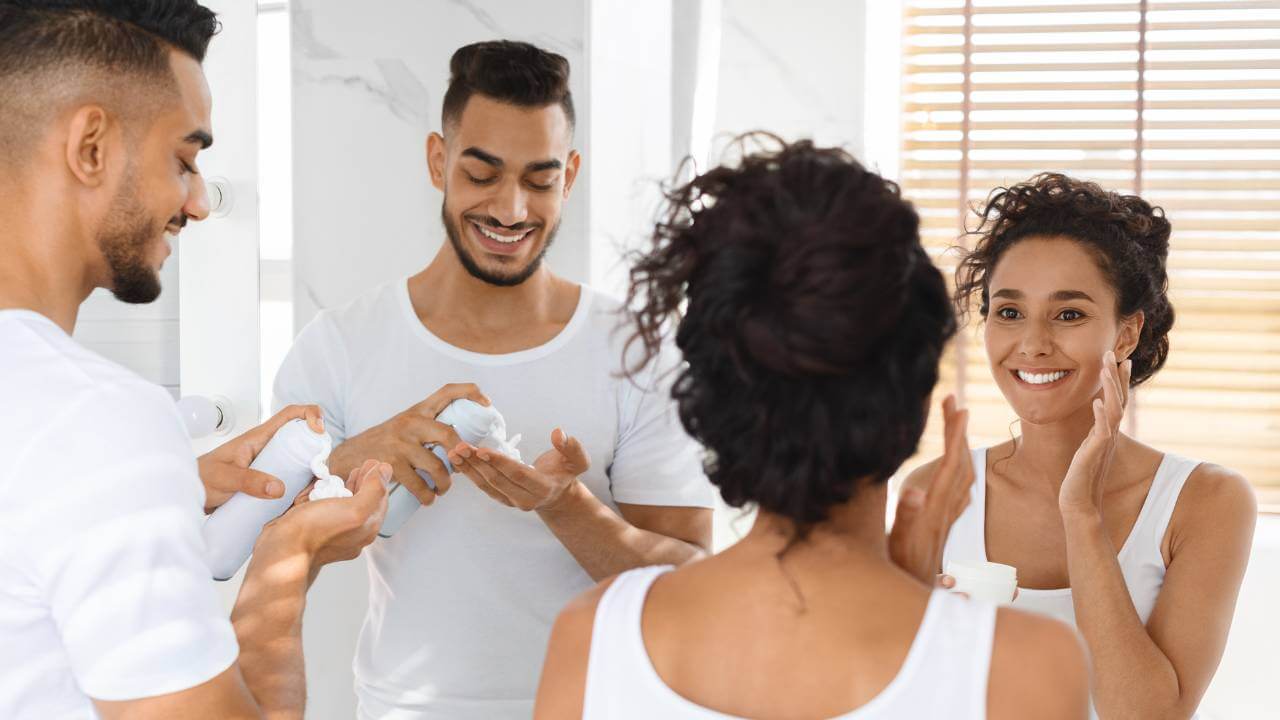
The Final Mention
Throughout this comprehensive guide, we explored the factors that cause acne, essential self-care tips, lifestyle factors, treatments, and debunked common myths. By understanding the different types of acne, choosing the right products, and addressing lifestyle factors, you can create a personalized acne skincare routine that suits your specific needs.
Remember, consistency is key when it comes to managing acne. Keep up with your routine, monitor your progress, and don't hesitate to seek professional help if your acne does not improve. With dedication and persistence, you can take control of your acne and achieve healthier, clearer skin.
Don't forget to use the comment section below to help others in the community with their skincare journey, and share this post on your favorite social media channels!
✅ 5 Sources
HealthMention only uses authoritative and reliable resources, such as peer-reviewed studies, to strengthen the accuracy of our content.
- Williams, H. C., Dellavalle, R. P., & Garner, S. (2012). Acne vulgaris. Lancet (London, England), 379(9813), 361–372. https://doi.org/10.1016/S0140-6736(11)60321-8
- Oleck, J. (2023, May 22). What Noncomedogenic Means in Skin Care Products. Healthline. https://www.healthline.com/health/beauty-skin-care/non-comedogenic
- Dréno, B., Bettoli, V., Araviiskaia, E., Sanchez Viera, M., & Bouloc, A. (2018). The influence of exposome on acne. Journal of the European Academy of Dermatology and Venereology : JEADV, 32(5), 812–819. https://doi.org/10.1111/jdv.14820
- Decker, A., & Graber, E. M. (2012). Over-the-counter Acne Treatments: A Review. The Journal of clinical and aesthetic dermatology, 5(5), 32–40.
- WebMD Editorial Contributors (2023, April 1). Cystic Acne: Definition, Causes, Treatment, and Prevention. https://www.webmd.com/skin-problems-and-treatments/cystic-acne


